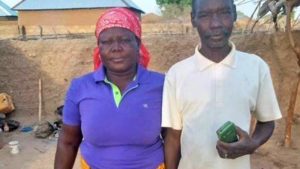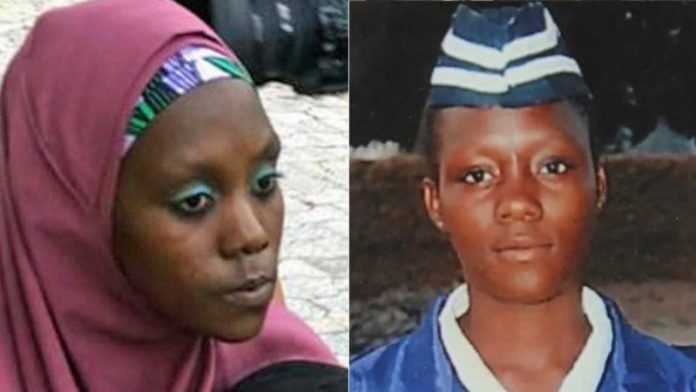The Borno state government has been berated for encouraging some of the rescued Chibok schoolgirls abducted in 2014 by Boko Haram insurgents, to marry their abductors.
Reports indicate that at least 20 Chibok girls who have regained their freedom after years in Boko Haram captivity are now being forced to marry the men who abducted them.
The couples are provided support by the state government, including the provision of choice accommodation in Maiduguri, kitchen utensils among others.
It was learnt that the parents of the girls were not informed about the secret wedding.
- Okuama: Troops recover decomposing hearts of killed soldiers, comb 8 communities
- Electricity consumers increase to 12.12m in Q4 2023 – NBS
However, the Borno state government claimed that the decision to marry off the rescued girls to their abductors is to ensure they don’t return to the forest.
TheLeadng learnt that the girls and their abductors- Boko Haram insurgents, were kept in the same place – the Hajj Camp at Bulumkutu, for ‘rehabilitation’.
Recall that on the night of 14–15 April 2014, 276 mostly Christian female students aged 16 to 18 were kidnapped by the Islamic terrorist group Boko Haram from the Government Girls Secondary School at the town of Chibok in Borno State, Nigeria.
As of 14 April 2021, seven years after the initial kidnapping, over 100 of the girls remain missing.
Some of the rescued girls endured unimaginable trauma during their captivity, including forced marriages to extremists, multiple husbands lost in clashes with the military, and the haunting memories of their abduction — all underscore the brutality they faced.
Despite their harrowing experiences, many of the freed girls have chosen to marry some of their captors, with the complicity of the Nigerian government.
Director of Communication and Vicar General Pastoral for the Catholic Diocese of Makurdi in Benue State, Father Moses Lorapuu, compared the government option to marry off freed Boko Haram hostages to their abductors to trying to heal cancer with a bandage.
“This strategy [of encouraging marriages between freed Chibok girls and their captors] is tantamount to bandaging cancer. You don’t bandage cancer,” noted Lorapuu.
Lorapuu condemned the government, echoing the frustration and disbelief shared by many Nigerians.
“To imagine that ten years on, some of the Chibok girls are still unaccounted for and the government does nothing except pieces of skullduggery in form of press statements by its spin doctors on how some of the girls have been resettled and how terrorists are being pushed back,” he said.
He noted that no serious government will permit its citizens to be treated the way terrorists are dehumanizing Nigerians while accusing the state government of legitimising Islamization.

“What the government is doing is legitimizing Islamization. How do you ask a victim of a rapist to marry him? The government is seeking to minimize the catastrophe in international circles and allow the legitimization of Islamic terrorism,” he said.
Yama Bullum, the father of one of the girls, Jinkai Yama, now feels deep anguish at the realization that his daughter had chosen to remain married to one of her captors.
“I am not happy with what the governor did. The girls managed to come out of the forest and the governor married them off again. Her mother is very angry,” Bullum told the BBC.
It was a harrowing realization because Bullum had all along thought that his daughter, along with other freed girls, had been in a special welfare center.
But the evidence on the ground suggests that the Governor of Borno State, Babagana Umara Zulum, approves of marriages between the freed girls and their abductors as a way of stabilizing the region.
The government has pushed back at the accusations, saying that the marriages are voluntary.
Borno state commissioner for women affairs and social development, Zuwaira Gambo, told the BBC that the girls do insist that “without their husbands, they will not stay in Maiduguri.”
She explained that the risk of denying them their wish is that the couples could run back to the forest.
Fr. Moses Lorapuu challenges this, noting that “in every village where these attacks take place, the victims are told to learn to live with the terrorists.”




